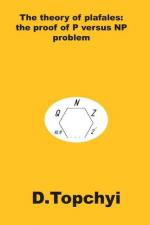|
This section contains 909 words (approx. 4 pages at 300 words per page) |

|
The premier unsolved question in the study of algorithms, the "P versus NP" problem, asks whether there is really any such thing as a "hard" problem for a computer. The security of financial transactions on the Internet depends upon it. All encryption algorithms start from the basic assumption that decoding a message is "easy" for someone with the right decoding key, but "hard" for someone who is trying to steal the message. Yet no one has ever proven that this assumption is correct. In the unlikely event that it is not--that is, if mathematicians ever discover a way to crack "hard" problems (formally known as "NP-complete" problems)--the viability of commerce on the Internet would be seriously threatened.
Factorization is a classical example of an apparently hard problem. Most of us can calculate 127 × 83 (which equals 10,541) much faster than we could solve the...
|
This section contains 909 words (approx. 4 pages at 300 words per page) |

|


